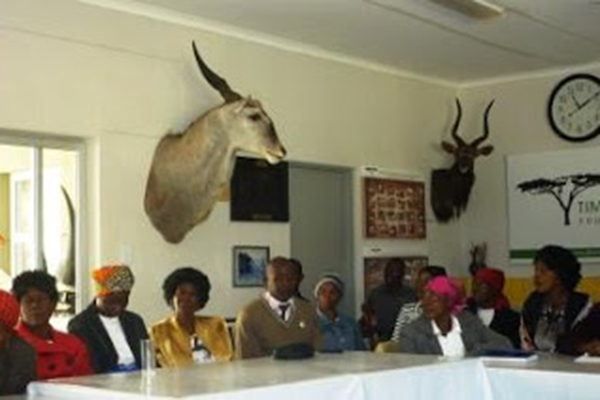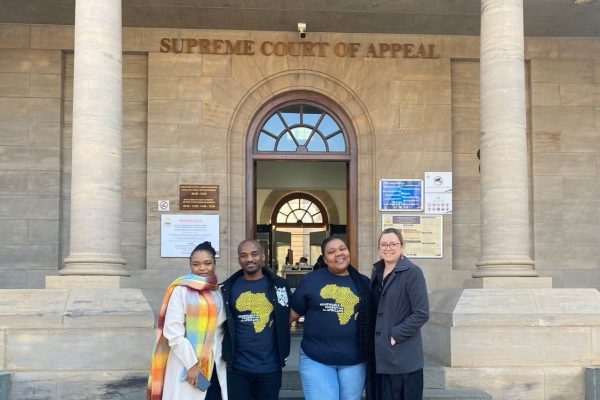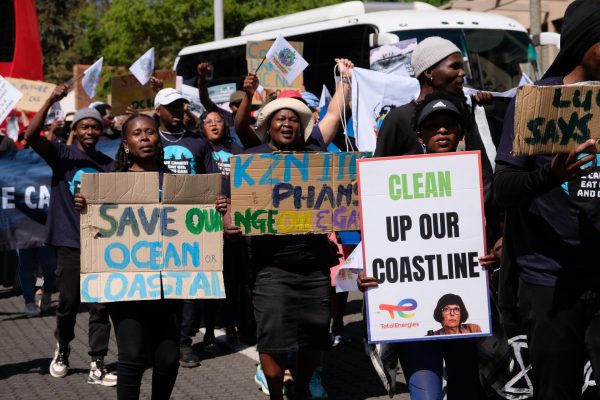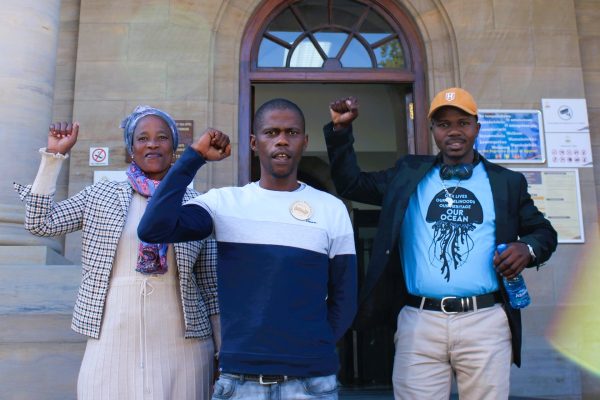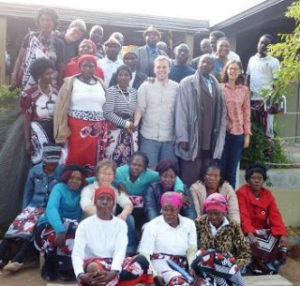
On the 28th and 29th June, Natural Justice and K2C facilitated a meeting with the Kukula Traditional Health Practitioners Association at the Timbavati Bush School, Bushbuckridge, South Africa. The overall aims of the meeting were to review the developments of the previous year, to finalize the text of the revised Bio-Cultural Protocol (BCP) and discuss strategies related to leveraging the BCP.
The Kukula traditional health practitioners established the BCP with the intention of regulating their interactions with third parties and protecting their knowledge to enable fair and equitable benefits to their members.
The first day of the meeting focused on a review of the previous year and internal community discussions with Kukula representatives. On the second day of the meeting wider stakeholders were invited to participate in the meeting. Representatives from researchers (Benelex and Dr. Britta Rutert), South African National Parks (SANParks), governmental representatives and legal experts provided an overview of issues that had been identified by the Kukula.
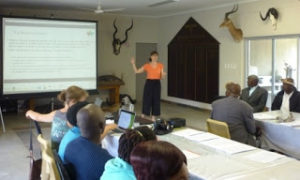
Dr. Louisa Parks (The Benelex Project) shared findings from the first 3 years of the Benelex research project of particular relevance to communities, she highlighted that benefits are more than just limiting damage from a proposed project, they are not compensation, and that they should reflect what a community sees as a benefit – not what others tell them is a good thing. Dr. Britta Rutert (Free University, Berlin) shared the preliminary findings of the ‘Indigenous Entrepreneurs’ research project conducted with the Kukula, she highlighted that entrepreneurship in rural, economically deprived areas with limited infrastructure must be looked as at a “procedural enterprise rather than an economic enterprise”, and organisation, cooperation and negotiation skills were learned and utilized by organisations such as the Kukula in making use of their indigenous knowledge.
During a legal session, Johan Lorenzen (Richard Spoor Attorneys) provided an update on various laws and policies related to the Kukula, including regulations related to the Traditional Health Practitioners Act as well as the Indigenous Knowledge Systems Bill. This was followed by a presentation by Mr Wiseman Rikhotso (Director, Biodiversity Compliance, Department Environmental Affairs) related to the Threatened or Protected Species (TOPS) Regulations and the compliance awareness drive related to “muthi” (traditional medicine) markets. The Kukula have been engaging with South African National Parks (SANParks) on issues related to sustainably harvesting medicinal plants. Discussions focused on opportunities regards integrating Kukula representatives into the roll out of distribution of the medicinal Pepper Bark tree (Warburgia salutaris), which is classified as an endangered on the IUCN Red list. SANParks has been growing hundreds of these tress from seed in their nursery, these trees are in high demand by healers, and SANPaks is spearheading planting of saplings in communal areas, and sustainable harvesting using leaves rather than the bark.
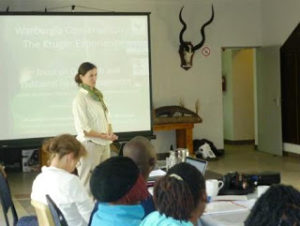
The Kukula also discussed the finalization of the update of their bio-cultural protocol (BCP) and how to leverage it moving forwards.
Looking forward the revised BCP text will be finalized, the Kukula together with the Department of Environmental Affairs will host a workshop regards legislation around Threatened and Protected Species (TOPS), and the Kukula will engage with SANParks on supporting the Pepper Bark project in their villages.

